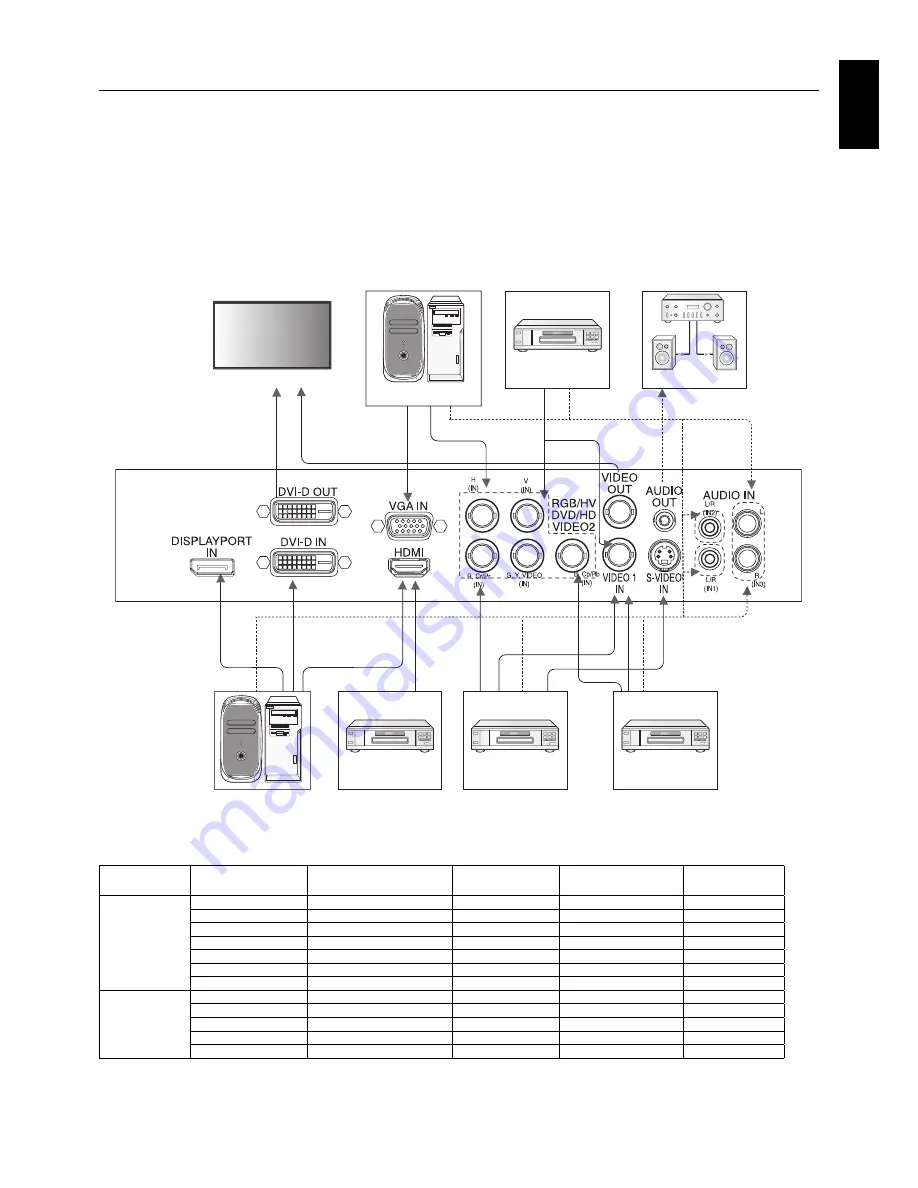
English-15
English
Connections
NOTE:
Do not connect/disconnect cables when turning on the monitor or other external equipment as this may result in a
loss of the monitor image.
NOTE:
Use an audio cable without a built-in resistor. Using an audio cable with a built-in resistor turns down the sound.
Before making connections:
* First turn off the power of all the attached equipment and make connections.
* Refer to the user manual included with each separate piece of equipment.
Wiring Diagram
DVD player
with HDMI out
DVD player
VCR or
DVD Player
Stereo Amplifi er
Second monitor*
Computer (Digital)
DVD player with
SCART OUT
Computer (Analog)
*: Multiple monitors that are daisy-chained have a limit to the connectable monitors.
NOTE:
Solid lines = video signal. Dotted lines = audio signal.
Connected
equipment
Connecting
terminal
Setting in Terminal Mode
Input signal name
Connecting
Audio terminal
Input button
in remote control
AV
DVI (DVI-D)
DVI MODE: DVI-HD
DVI
AUDIO IN1, IN2, IN3
DVI
HDMI
RAW/EXPAND*
1
HDMI
HDMI
HDMI
5BNC+VIDEO
BNC MODE: SCART
SCART
AUDIO IN1, IN2, IN3
DVD/HD
VIDEO1 (BNC)
-
VIDEO1
AUDIO IN1, IN2, IN3
VIDEO
S-VIDEO
-
S-VIDEO
AUDIO IN1, IN2, IN3
S-VIDEO
VIDEO2 (5BNC)
BNC MODE: VIDEO
VIDEO2
AUDIO IN1, IN2, IN3
VIDEO
DVD/HD (5BNC)
BNC MODE: COMPONENT
DVD/HD
AUDIO IN1, IN2, IN3
DVD/HD
PC
VGA (D-Sub)
-
VGA
AUDIO IN1, IN2, IN3
VGA
DVI (DVI-D)
DVI MODE: DVI-PC
DVI
AUDIO IN1, IN2, IN3
DVI
RGB/HV (5BNC)
BNC MODE: RGB
RGB/HV
AUDIO IN1, IN2, IN3
RGB/HV
DisplayPort
-
DPORT
DPORT
DISPLAYPORT
HDMI
RAW/EXPAND*
1
HDMI
HDMI
HDMI
*1: depend on signal type.
•
AUDIO IN 1, 2 and 3 can be used for audio input. To select audio source [IN1], [IN2] or [IN3] in AUDIO INPUT in OSD menu
or press the AUDIO INPUT button (remote control).
















































